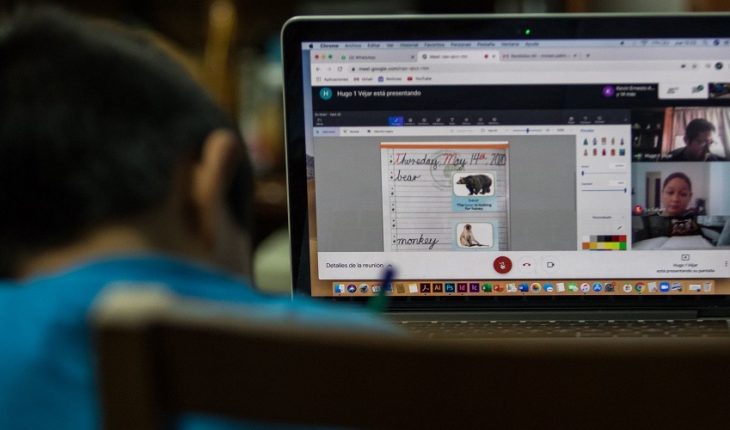In the face of the use of video calling platforms amid the COVID-19 health emergency, Mexico City authorities alert citizens to take digital security measures and prevent the theft of personal data.
This, after cases such as that of a teacher who reported that during a distance class using the Zoom platform, an unknown person captured the faces of his underage students, and exposed them with his personal data on Instagram.
You may be interested: 5 reasons why meetings via Zoom are so exhausting
To avoid such situations, the Cyber Police asks users to make a “responsible and appropriate use of the platforms and verify that the download is made from the official website”.
The #PolicíaCibernética of the #SSC alerts citizens to the misuse of information collection by cybercriminals on remote communication platforms. https://t.co/hhwJeQuBbh pic.twitter.com/Lc9Emb2nK9
— SSC CDMX (@SSC_CDMX) June 25, 2020
Here are five official recommendations to protect your personal data on platforms during your video calls.
The Capital Citizen Security Secretariat recommends not only downloading apps on an official site that is secure, but also updating application versions like Zoom.
They also suggest using “robust alphanumeric passwords”, which are not the same as in other applications and platforms, as well as constantly changing the user’s ID in each meeting.
Before making video calls, the authorities even recommend setting up both computer and applications to confirm that the webcam is turned off before starting video calls, as they remember that the moderator of an online meeting “is not solely responsible for the security of the session”.
Authorities ask mothers and parents to monitor the video calls and digital classes they access underage, as well as the content they share, and follow the security and permission suggestions of each platform.
Cyber Police even invite teachers to use “other technology alternatives” that do not jeopardize the physical and psychological integrity of students.
FaceApp alert
Faced with the trend of using FaceApp, an editing application that allows you to retouch your photos with makeup, flawless smiles, hairstyles, and even age and change gender, the authorities also alerted a risk in the use of your personal data, as well as in the privacy of your contacts.
The Cyber Police explained that when you accept the “terms and conditions” of the application, you give permission for the application to access your photos and videos on your phone, allowing a lot of information to be collected, such as the type and version number of the operating system, manufacturer, model, push tokens, the IDs of the search engines that are used, the type of browser and the IP address.
The #SSC #PolicíaCibernética alerts citizens to the risks of using face editing apps https://t.co/Issp1ctnkQ pic.twitter.com/D6mQFoxARG
— SSC CDMX (@SSC_CDMX) June 25, 2020
“This face editing app known as FaceApp uses information from the user’s social network, so you can easily access the personal data found in it, as well as those of contacts and friends, i.e. birthdays, location, addresses, emails, contact phone numbers, places of visit, among others,” he said.
Officially, the authorities recommend that you read and review the terms and conditions of the apps you download, before accepting them; delete photos from the cloud, use social media setup systems; and “be cautious when downloading apps that request access to photo and video galleries.”
It is also recommended to install an antivirus for phones, tablets and computers, and to prevent electronic devices from being vulnerable to information theft.
What we do in Animal Político requires professional journalists, teamwork, dialogue with readers and something very important: independence. You can help us keep going. Be part of the team.
Subscribe to Animal Politics, receive benefits and support free journalism #YoSoyAnimal.





